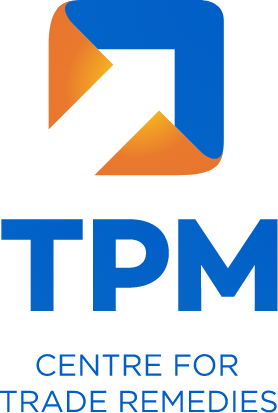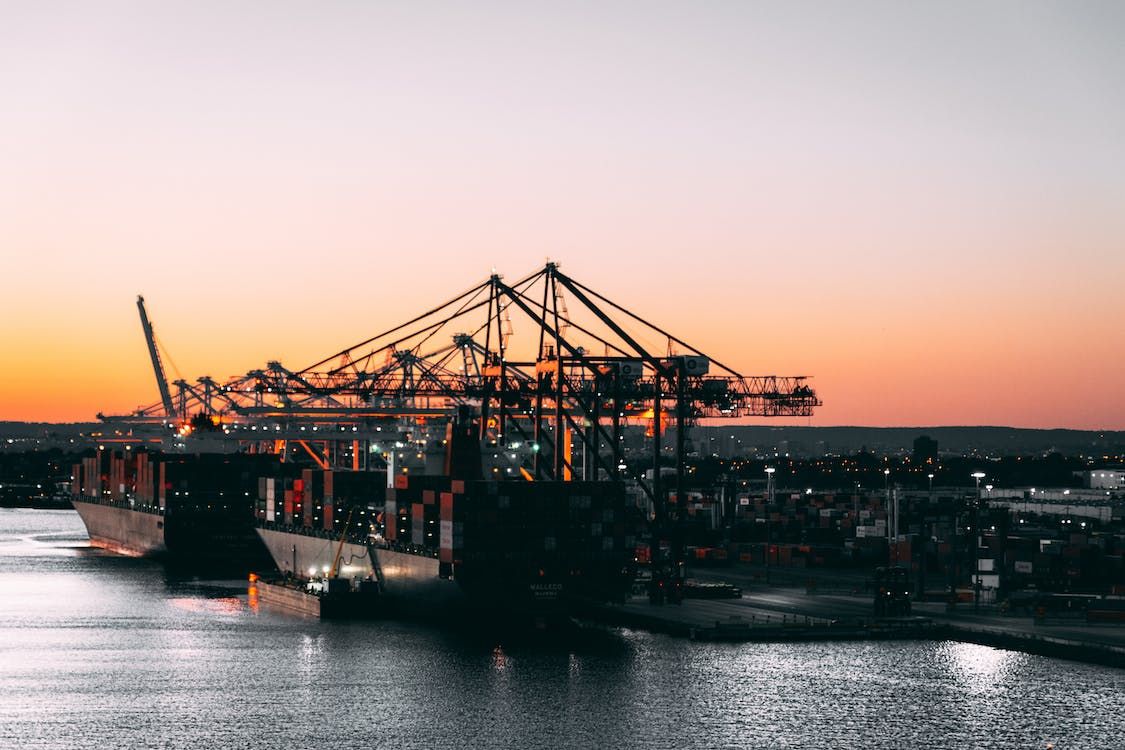Addressing Input Cost Distortions in Dumping Margin Calculations

In an anti-dumping investigation, the dumping margin for an exporter is normally determined as the difference between the selling price of the goods in the home market of such exporter, referred to as normal value, and the export price of the exporter to the investigating country. However, the WTO Anti-Dumping Agreement lays down three situations wherein the domestic selling price of the exporter would be disregarded, and normal value would be determined on alternative basis. One such situation is the existence of a “particular market situation” in the home market of the exporter, which prevents proper comparison with the export price.
Meaning of particular market situation
While the Agreement provides that domestic selling price may be disregarded in case of a particular market situation, it does not define the term particular market situation. In broad terms, it is a situation unique to a particular market such as government control over prices, restrictions on import or export, distortions in input prices, etc., which render the domestic selling price unreliable, or not appropriate for determination of normal value. However, the Agreement imposes another condition, that is, domestic selling price can be disregarded only where the particular market situation prevents a proper comparison of such prices with the export price.
Historical use of the provision
The concept of particular market situation was relied upon by different investigating authorities in anti-dumping investigations, wherein there was significant government control or influence over domestic prices of the subject merchandise or cost of key inputs used for production of the subject merchandise. For instance, in India, in the anti-dumping investigation concerning imports of Polypropylene, the Authority found that a particular market situation existed in Saudi Arabia. The Authority found that the prices of the subject goods in Saudi Arabia were not competitively set due to the fact that prices of propane, major input material, were suppressed due to government control. The DGTR thus, constructed the normal value after substituting the international market price of propane in the cost of production of the producer.
Further, in the case of Rubber Chemicals viz. MBT, CBS, TDQ, PVI, and TMT from China and PX-13(6PPD) from China and South Korea, the Authority concluded that since the exporter in Korea sourced majority of the raw material from China, which is a non-market economy country, the prices of such raw material would be distorted and would not demonstrate the actual cost incurred by the exporter. Accordingly, the cost of production was adjusted to reflect the international market price of the raw material. The findings of the Authority were upheld by the CESTAT[1] and an appeal against the decision of the CESTAT was dismissed by the Hon’ble Supreme Court. [2]
The European Commission also followed a similar approach in a number of investigations such as in case of Ammonium Nitrate from Russia and Trinidad and Tobago where the Commission substituted the price of natural gas in the cost of the exporters with the price of exported Russian gas at the German/Czech border, duly adjusted to ex works-level of the Russian producers. Similarly, USA adopted a similar approach in Biodiesel from Indonesia where the domestic selling prices has not considered since the price of raw material was distorted, normal value was constructed for based on cost of production after replacing the crude palm oil cost incurred.
In addressing input cost distortions, various investigating authorities also relied upon the provisions of Article 2.1.1.1, wherein it is provided that cost of production shall be normally determined based on the records of the producer, subject to two conditions
- The records are maintained in accordance with the generally accepted accounting principles of the country
- The records reasonably reflect the costs associated with the production and sale of the subject merchandise.
The investigating authorities were also relying on the use of the term “reasonably” to conclude that in cases where the input costs were distorted due to government intervention, the costs could not be considered to be reasonably reflected.
However, several decisions by the WTO Dispute Settlement Body, that is, the Panel and Appellate Body, required investigating authorities to re-examine their approach to the issue.
Findings of the WTO Panel
There have been a number of disputes that arose out of the issue of adjustments made by various investigating authorities to address alleged input cost distortions in exporting countries. These include European Union – Biodiesel (Argentina), Ukraine – Ammonium Nitrate (Russia), Australia – A4 Copy Paper (Indonesia) and European Union – Cost Adjustment Methodologies (Argentina). Of this, the Panel report in Australia – A4 Copy Paper (Indonesia) deliberated the issue of particular market situation extensively, along with how to address the issue. In effect, the various reports issued by the Panel and Appellate Body imply as under.
- Distortions in the price of inputs used to produce subject goods, whether sold domestically or exported, may constitute a particular market situation.
- However, in order to disregard domestic selling price, it must first be examined whether the particular market situation prevents a proper comparison of such price with the export price. Thus, a particular market situation which equally effects both domestic selling price and export price cannot lead to rejection of domestic selling price.
- Nevertheless, a situation which may impact both export sales and sales in the home market may also, in some cases, be categorized as particular market situation.
- The use of the term “reasonably” under Article 2.1.1.1 does not allow investigating authorities to examine the reasonableness of the costs themselves. As long as the actual cost of production is reasonably (or accurately) reflected in the records of the producer, such cost of production should normally be considered.
Thus, such decisions re-defined the manner in which particular market situation and input cost distortions were being considered by investigating authorities globally.
Legal amendments by various jurisdictions post the decisions of the WTO Dispute Settlement Body
Different jurisdictions have included the concept of particular market situation post the decisions of the WTO Dispute Settlement Body, or have amended the same to be in line with findings of the Dispute Settlement Body. For instance, the SIMA Handbook of Canada specifies various factors that are to be considered to reach a conclusion that a particular market situation exists where the Canada Border Services Agency (CBSA) can disregard the domestic selling price of the exporter and construct normal value based on cost of production. Further, the CBSA can disregard the price of an input in the total cost if it does not reasonably reflect the actual costs of that input due to a particular market situation. Similar provisions have been adopted by the United Kingdom Trade Remedies Authority.
The European Commission (EC) has defined particular market situation as distortions where the price and costs, including costs of raw materials, are not the result of free market forces due to government intervention in form of presence of state-owned entities, regulation of prices or costs, policies favouring domestic suppliers, etc. Similar to Canada, having rejected the domestic selling and while constructing normal value based on cost of production, if there are cost distortions, the EC can adjust or establish the cost based on costs of other exporters in the same country or, on any other reasonable basis, including information from other representative markets.
In contrast to the aforementioned WTO members, USA has not specified in its domestic legislation as to what constitutes particular market situation. The Department of Commerce, USA is now considering issuing regulations for particular market situation and has sought comments in this regard. In its proposed regulation, the Department of Commerce intends to identify information which may be taken consideration for determining the existence of particular market situation that distorts the cost of production and adjustments which the Department may make to its calculations when it determines the existence of a particular market situation.
India’s approach to particular market situation after such decisions
Post the decisions of the WTO Dispute Settlement Body, India has conducted two investigations wherein the existence of particular market situation was examined by the Authority. In cases concerning imports of Low Density Polyethylene (LDPE) and Mono Ethylene Glycol (MEG) from Saudi Arabia, the Authority concluded that price of ethane, propane and butane, the major input for ethylene which is in turn a major input for both LDPE and MEG, were regulated by the government of Saudi Arabia. As a result, it was concluded that a particular market situation existed in Saudi Arabia with regards to the input material prices. However, in case of LDPE[3], the Authority concluded that despite existence of a particular market situation with regards to input prices, such distortions did not prevent a proper comparison between the export and domestic prices. Therefore, the DGTR considered the domestic selling price of the exporters for determination of normal value. Further, no cost adjustment was made to address the input cost distortions.
In case of MEG, the Authority found that the issue of proper comparison did not require consideration since the producers in Saudi Arabia did not have sufficient sales to determine normal value. Thus, owing to the low volume of sales in the home market, the normal value was determined based on alternative basis, that is based on export price to an appropriate third country.
Possible solutions that can be adopted by India
In view of there being significant government interventions in many jurisdictions, with regard to prices of key inputs, it is imperative that the anti-dumping law and practice evolve to address the situation. While various jurisdictions have amended the law to incorporate provisions concerning input cost distortions, India is yet to incorporate the same in its law.
In this regard, recourse can be made to Article 2.2.1.1 of the WTO Agreement. The provision states that costs shall normally be calculated on the basis of records kept by the exporter. However, the use of the term “normally” implies that in exceptional situations, the costs as maintained by the exporter may be disregarded and cost other than records can be considered to determine the cost of productionOne situation that may require use of costs other than records of the exporter to be used is where the price of inputs for the subject goods is distorted.
Another aspect that Indian Authorities could consider
is amendment of the law, similar to that undertaken by Canada and European
Union, and proposed by the USA. An amendment in the law would guide the
Authority on the factors that may be considered in order to determine the existence
of a particular market situation and provide a vehicle to the Authority to
determine costs or normal value on alternative basis in such situations.
[1] Rishiroop Polymers Pvt. Ltd. v. Union of India, 2016 (342) E.L.T. 573 (Tri.-Del.)
[2] Petition for Special Leave to Appeal (C) No. 3079 of 2017
[3] For more details, please visit https://tpm.in/news_center/final-findings-issued-in-anti-dumping-investigation-on-imports-of-low-density-polyethylene-ldpe-from-saudi-arabia-singapore-thailand-and-united-states-of-america-31-03-2022/




